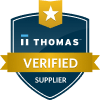Design for Manufacturability (DFM) and Laser Processing

When considering laser services like cutting, etching, or welding don’t just buy a part; hire a design partner. You’ll reduce costs, speed up production and get a better product.
There are many questions to consider when assessing what’s the value of a manufactured part or component to your end product, your business and your end user-customer. Questions like: How much will the part cost? How long will it take to produce? Will it perform its intended function reliably for the user or will it break and cause customer complaints? Of course, the best time to ask these questions is when you design the product — that is, before it is manufactured, not afterwards. Once the design is released to production, you’re committed. At that point manufacturing will produce (or try to produce) your product so that it meets all your design objectives in terms of cost, production speed, reliability, and all the other criteria by which you judge value. So, whether manufacturing can actually do that or not obviously depends on the design.
In other words, successful products rely on a successful manufacturing process, which means successful product design includes successful design for manufacturability. It won’t matter how great your design looks on paper (or your CAD system) if you can’t actually make what you design — or make it so that it performs the way you intend it to.
Make this a Requirement, Not a “Nice To Do”
That companies would want to design for manufacturability seems pretty logical, and ideally in a perfect world probably most rather would. So why are so many RFQs — not just those received here but probably at most manufacturing service providers — for jobs where the design is already “complete.” Our guess is that it comes down to time. Manufacturing, almost by definition, is the last step in making a product. So, by the time manufacturing actually sees the design all the margin that was originally built into the schedule (if there was any) has already been used up at previous stages in the product process. In fact, the project is may already be behind schedule. Market windows of opportunity may already be closing. Budgets may have already been exceeded. Other contractors may be waiting to receive the part. And so on.
It’s no wonder then that at this stage that optimizing the design for manufacturing feels like a “nice to do” when compared to the “actual” requirement of getting the part made at all and shipped.
Of course, if it turns out that the part really can’t be manufactured because of how it’s designed — perhaps because the specified material is too soft, a proposed weld is unlikely to survive an assembly step, the required machine doesn’t have the correct fixture, or for any number of reasons — then much more time will be lost, and likely a lot of money wasted as well.
Design for Manufacturability From the Start
The solution is not to wait until manufacturing is about to begin before designing for manufacturability. Build manufacturability into the product from the start. Meet with your manufacturing partner early and share ideas about the part’s function, the function of the product the part goes into, any performance issues that can be foreseen, materials under consideration, and so forth. That way the manufacturing team can identify and probably resolve potential issues when the cost and time to do so are at a minimum. Any “extra” time needed to involve manufacturing at the early stages will most likely be more than made up for later by a faster production run — a time and potential cost saving dividend you keep receiving every time the part gets made. The part will also likely perform better for the customer, which will enhance your reputation, further saving costs and leading to more business. You may also save money by using less material or less expensive materials.
Of course, all this assumes that you are working with a manufacturing partner that is capable of stepping up and actually helping you design for manufacturability. Make sure yours is.




